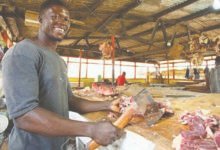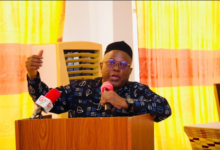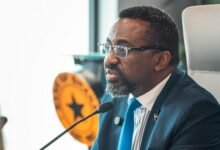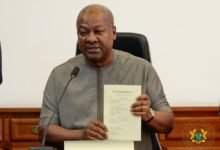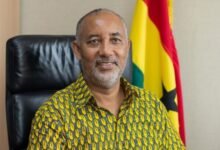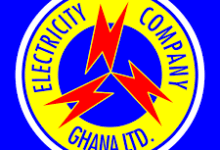
The President of the Ghana Journalists Association (GJA), Affail Monney, has described the country’s drop on the 2022 World Press Freedom Index (WPFI) as depressing.
“A drop in ranking had been anticipated due to a confluence of anti-media factors. But never did we expect the drop to be so precipitous,” he said at the commemoration of the World Press Freedom Day in Accra yesterday.

Marked on the theme “Journalism under digital siege” the day is observed every May 3 to celebrate fundamental principles of press freedom and drum home the need to protect journalists from attacks.
This year’s day focused on threats online, but in Ghana the WPFI took centre stage due to the country’s performance. The event brought together retired, practising and student journalists as well as media owners and regulators.
In the 2022 WPFI, put together by Reporters without Borders, Ghana fell from its 30th place in the global raking in 2021 to 60th. In Africa, the country dropped from 3rd to 60th. This is Ghana’s worst performance in 17 years.
In 2002 and 2005, Ghana was 67th and 66th respectively on the index which measures safety of journalists, media pluralism and independence, the strength of legislative framework and the in 180 countries and five regions.
Mr Monney said the drop was due to a sharp deterioration of safety of journalists, uninvestigated death threats on investigative journalists and unpunished law enforcement officers who had brutalised journalists.
He expressed worry that three years after the assassination of investigative journalist, Ahmed Suale, perpetrators had had not been arrested while promises by the police to handle unresolved brutalities against journalists had not materialised.
He said the country could rise again on the index if press freedom was strengthened and laws against attackers of journalists were applied fairly and without fear.
The National Media Commission (NMC)Chairman, Yaw Boadu-Ayeboafoh, underscored the role of media in development and press freedom, but noted that the freedom must be backed by responsible and ethical work.
He said journalists must at all times ensure that they do not dent the images of personalities and institutions while those who err in their line of work must be dealt with according to rule of law not through physical force.
The Deputy Minister of Information, FatimatuAbubakar, said some of the issues that had served as basis for criticism of Ghana’s press freedom were not the government’s fault but sometimes due to overzealous security personnel and youth.
She said it was in addressing those issues that the government had undertaken a number of projects including the creation of the Office of Coordinated Mechanism on the Safety of Journalists to receive and address complaints.
On the widespread of misinformation in the country, she said, the government was taking the necessary steps to push the Broadcasting Bill, but it was being cautious so that successive governments do not abuse the bill.
TheUnited Nations Educational, Scientific and Cultural Organisation (UNESCO) Representative to Ghana, Abdourahamane Diallo, advised the government and its stakeholders to analyse and address issues that led to the decline on the index.
He said the performance was “not good news”, and promised that the Organisation would join other stakeholders to help the country redeem its image.
“What does it mean? What haven’t we done well? Who and how can we collectively address it and show that we respect, we defend freedom of expression, access to information, and safety of journalists,” he said.
With this year marking the 10th anniversary of UN Plan of Action for the Safety of Journalists and the issue of impunity, MrDiallo said efforts must be redoubled to ensure a safe working environment for journalists and media workers.
Representatives of the US Embassy, European Union, United Nations and the Media Foundation for West Africa (MFWA) added their voices to calls for media freedom in Ghana to be deepened.
BY JONATHAN DONKOR

